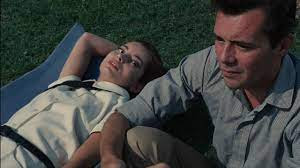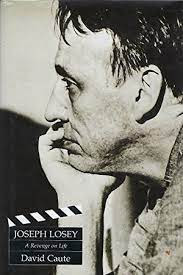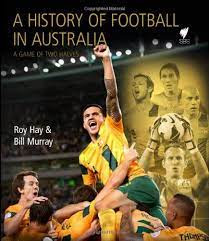At Oxford: Stephen (Dirk Bogarde), a don, and his student,
William (Michael York)
On 31 October 2022, The Sydney Morning Herald printed (as did Melbourne’s The Age on 3 November) a short review by Scott Murray of Joseph Losey’s Accident (1967). It was one of three reviews Scott writes each week within a column limit of 380 words.
After the international triumphs of The Servant and King and Country (the first scripted by playwright Harold Pinter) and the fluff of Modesty Blaise, director Joseph Losey made Accident. Dirk Bogarde plays an Oxford don increasingly distanced from his wife (Vivien Merchant), infatuated with an Austrian student (Jacqueline Sassard), caught in a homo-erotic tussle with an aristocratic youth (Michael York) and jealous of his best friend (Stanley Baker). Based on Nicholas Mosely’s novel, gloriously adapted by Pinter [1], it struck me at age 16 as the best film ever made. This was a view not shared by the world’s leading critics who were piqued Losey was focussing on middle-class concerns rather than the working-class issues central to the films that made his name. When the aristocratically concerned The Go-Betweenappeared in 1971, Losey’s liberal standing fell even more. It was not until David Caute’s magnificent 1994 biography [2] that Accident became more widely acclaimed as Losey’s masterpiece. I have fallen in love with many movies since Accident, but for me it remains near the zenith of cinematic achievement.
Anna, Stephen and Charley (Stanley Baker), Stephen’s
competitive best friend
On 3 November, Paul Kalina (Editor of “The Guide” at The Sydney Morning Herald and “Green Guide” at The Age) forwarded Scott an email:
Dear Paul Kalina
I’ve tried to send this to Scott Murray but unfortunately my attempts keep bouncing. Could you pass it on to him for me with my thanks for his review of Joseph Losey’s Accident in today’s Green Guide?
With best wishes
Roy Hay
Roy’s email reads:
Dear Scott Murray
In 1967 I was a postgraduate student at Balliol College in Oxford while my wife [Frances] was teaching in a school in East Oxford. We thought Accident was the documentary of our lives as we lived through virtually everything in the film, except the car crash. We were devoted Losey fans and appreciated that he had captured the Oxford we knew with its enervating late summer heat and the juxtaposition of immense privilege and a real world that kept breaking in. My moral tutor – Oxford had such people, who were responsible for our welfare rather than our academic teaching – lived in a house called The Walled Garden in Wheatley. He and I would walk to the local pub and return with jugs of beer for the gathering of students and staff. English style, lukewarm not frozen cold. Everywhere you looked there would be relationships evolving against a background of competitiveness and a sometimes-justified belief that the people concerned were among the best minds on the planet in their often highly specialised fields. Everyone of note came through Oxford at some point.
To survive and work, I would get up at dawn and work till late morning, then while I didn’t play cricket at Oxford I could walk through the Parks and stop to watch Basil D’Oliveira and Tom Graveney take the University attack apart. Work or play could resume when the temperature dropped in the evening. At weekends we would drive to the Lamb and Flag at Kingston Bagpuize where mine host would run the bar assisted by his mistress, while his wife cooked (or vice versa, I can’t remember which way round it was). Academic postgraduate student friends were preparing to make their mark on the world beyond. It was a sybaritic life in so many ways but it was full of the intrigues and conflicts that Losey was a master at revealing and turning into cinematic magic.
Several weeks earlier, Scott’s mother (and wife of Shine pianist David Helfgott) had passed away. In the interim, Scott had delivered a eulogy at a public celebration of Gillian. He was unable to reply to Roy until 5 December.
Dear Roy
Sincere apologies for my inordinate time in replying.
I thought I had replied, but in the chaos and sadness of my mother’s passing, and the blur of responding to emails from around the world, I accidentally left my reply to you languishing as an unsent draft.
So, most belatedly, many thanks for your kind and thoughtful words.
It was lovely to hear of your experiences at Oxford and to know that Accident has another keen fan. I only appreciate it from afar, you from far closer.
Your email also started me thinking ...
In 1967, I was tasked by my fellow students in Year 11 to choose a film for the end-of-year outing. I chose Accident, having been a devoted Losey fan since The Servant(1963).
Stephen and Anna
With hindsight, it might seem a highly inappropriate choice for 16-year-old schoolchildren (a don rapes his student). No doubt they were hoping for a Bond or something equally light and fun. But they loved the film. In fact, at the 40-year reunion of the class, many came up to tell me it was one of their great memories of school and how the film had stayed with them ever since.
Some even raised the dog running off at the end and the sound of the car crash. Did this mean the dog had caused another crash?[3]
This was a question I put to Losey when I spent 4 hours interviewing him in Sydney during pre-production on a planned film adaptation of Patrick White’s Voss. It did not go down well and was one of many tense and awkward exchanges.
I had read Tom Milne’s Losey book [4]and noticed how Milne often didn’t ask questions but made statements, to which Losey seemed to respond well.
This approach did not work well for me (Losey kept saying, “That’s not a question. It’s a statement!”) and, after getting nowhere and making the appalling mistake of correcting his memory (he insisted it was Edward Fox’s character who committed suicide inThe Go-Between, not Alan Bates’), 23-year-old me left in tears.
One of the hardest things I have had to do in life (I’ve had a blessed life) was to go back, knock on his hotel-room door and ask for the umbrella I had accidentally left behind. It was raining torrentially outside.
A few days later, my father (a noted Australian film producer and director) sat next to Losey at a luncheon and Losey revealed how he had an unfortunate encounter with a young Australian fan and he was troubled about it, because it had been wonderful to chat with someone who so knew and loved his work.
He also likedthe fact this young person had not asked the routine questions (beloved by French critics) about why he had left socialist filmmaking behind (the French tend to like only his American films and decidedly not the Pinter-scripted British ones [5]) and that he too thought the Pinter ones were his best work and, yes, Accidentwas his favourite film so far.
My father explained that the young fan was in fact his son and Losey was delighted to hear this because, as he explained, he had been in a bad state during the interview, having been up all night trying to save theVossfilm, but the money had fallen through just before I walked in the door. He was troubled he may have taken his disappointment out on a devoted fan.
Losey said we could remedy this by arranging a weekend in Canberra when he returned in a month (there was another source of funds that now looked hopeful) and he and I would spend 3 days taping our conversation. This was very generous and kind of him.
Sadly, the new source of funds never materialised, Losey never returned to Australia and we were not able to catch up again.
I have never published or quoted from the 4-hour interview I did with Losey because he was a great filmmaker and the world did not need to hear from him in a depressed moment.
I still love and enormously admire Accidentand still prefer the British Loseys to the American ones, and still debate with French critics why I am so totally mis-guided.
Your letter touched me greatly.
Warmest
Scott
In reply:
Dear Scott
Thank you for your extraordinary email in such a difficult time for you. I had not expected a reply but just wanted to let you know that your review had touched a nerve for us when we were young and impressionable. Now reflecting on the film in old age it still evokes strong memories. You captured its spirit in the few words you were allowed in the [Age’s] Green Guide. It sent us back to Nicholas Mosely’s book. Frances gave up, something she rarely does with books, but as she said, ‘It is all over the place.’ For Losey to turn it into such a stunning and coherent film is even more of a miracle.
As a student of history who spent much of his life interviewing people about things that occurred in their journeys I can relate to your experience with Losey in the flesh. It is always the unrepeatable talks with the key people that somehow never quite work out perfectly for the exercise with which you are currently engaged. I did lots of interviews with key people in the story of football (soccer) in this country [6]and they have been a source for many researchers since, but all I can remember are the things I missed or got wrong or only learned about the significance of the matter after the unrepeatable event. C’est la vie. I and you have to stop flagellating ourselves and get on with the life.
So thanks again for the review and your email, Scott, and very best wishes for you in future.
Roy
(London: Hodder and Stoughton, 1965)
Scott Murray is a writer and film director, whose Devil in the Flesh premiered in the “Semaine de la Critique” at Cannes in 1986 (in the gracious presence of Claude Autant-Lara, whose first film adaptation of Raymond Radiguet’s Le Diable au Corpspremiered at Cannes in 1947). Devil is currently being restored in 2K for Blu-ray release. Scott is also proofing his 7-volume Maurice Leblanc’s Arsène Lupin in French and English: An Illustrated Bibliography.
Roy Hay is an Honorary Fellow of Deakin University in the Faculty of Arts and Education, and author of such works as Aboriginal People and Australian Football in the Nineteenth Century: They Did Not Come from Nowhere (Bannockburn, Vic.: Sports and Editorial Services Australia, 1921), about Aussie Rules and Roy Hay & Bill Murray, A History of Football in Australia: A Game of Two Halves(Melbourne: Hardie Grant, 2014; paperback edition 2016) about soccer.
Endnotes
1. Harold Pinter also plays an unlikeable commissioning editor at the BBC named Bell. Nicholas Mosley plays a don named Hedges. NB: All these endnotes are by Scott.
2. David Caute, Joseph Losey: A Revenge on Life, London: faber and faber, 1994. Caute is a ferociously intelligent novelist (The Decline of the West) as well as a searing political and social deconstructionist (The Dancer Defects: The Struggle for Cultural Supremacy During the Cold War). Like Downton Abbey’s Julian Fellowes, Caute was born and grew up in Egypt (Fellowes in Cairo, Caute in Alexandria).
3. The film opens at night with the sound of a car crash, which occurs off-screen in front of the middle-class house (above) of Stephen (Dirk Bogarde), an Oxford don. Stephen’s front door opens and he comes out to discover an overturned car and inside his students Anna (Jacqueline Sassard) and her fiancé William (Michael York). As Stephen helps Anna clamber out, he memorably screams in anguish: “Don’t! You’re standing on his face!” This anguish is still there at the end of the film, which is why Losey wanted to have the sound of the opening off-screen crash repeated over a shot of Stephen’s entering (with his two children) the house at dusk. Unfortunately, the family dog decided not obey his master’s request to come inside and remains distractingly outside. So, Losey made the impetuous decision to call the dog towards the camera, never imagining that audiences would think the dog’s running forward would be the cause of the car crash heard on the soundtrack. Losey wanted to do another take, but DOP Gerry Fisher told him it was now too dark.
The final shot, after the dog has run out of frame, past the camera
4. Tom Milne, Losey on Losey (London: Secker & Warburg in association with the British Film Institute, 1967; reprinted in 1968 with revisions). Also highly recommended is Michel Ciment’s Conversations with Losey (London: Methuen & Co. Ltd, 1985).
6. Roy Hay & Bill Murray, A History of Football in Australia: A Game of Two Halves(Melbourne: Hardie Grant, 2014; paperback edition 2016).

















No comments:
Post a Comment
Note: only a member of this blog may post a comment.